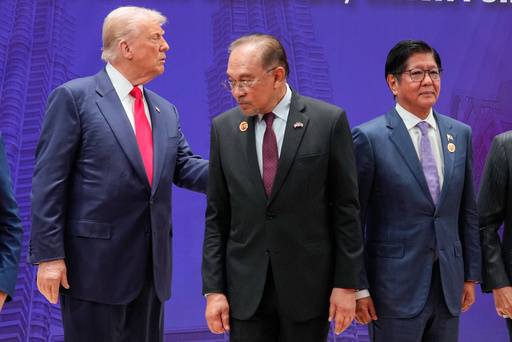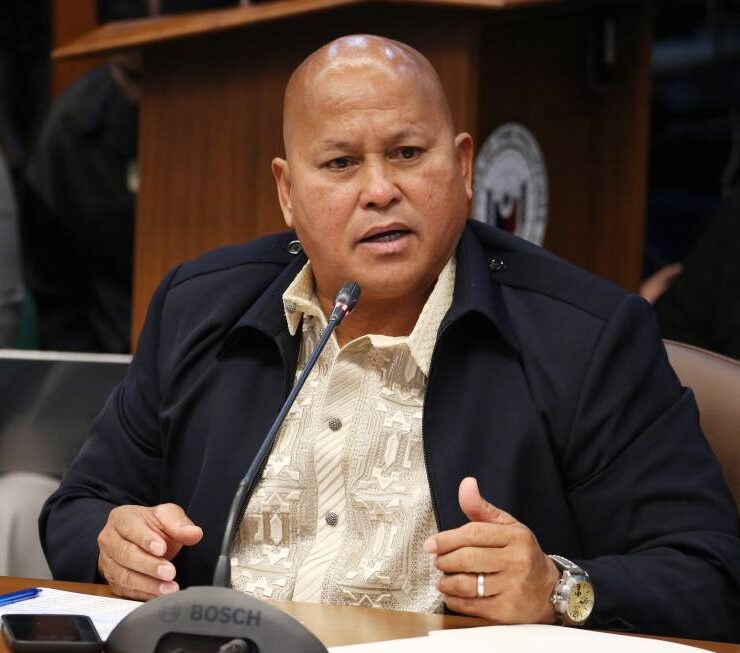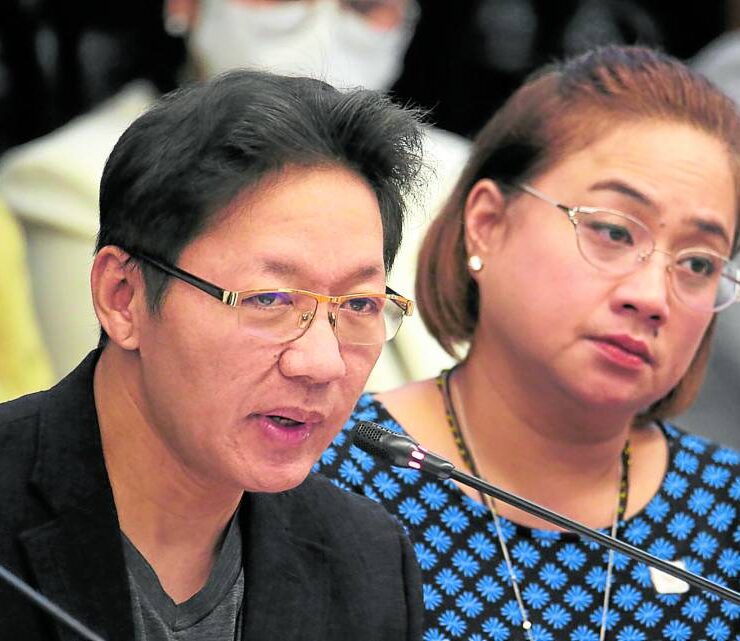Marcos takes a swipe at China during summit

KUALA LUMPUR—President Marcos has used the Association of Southeast Asian Nations (Asean) Summit and related leaders’ meetings here to criticize China’s illegal activities in the South China Sea.
He also took advantage of the summits to inform leaders of different nations, particularly its allies the United States and Japan, of the harassment faced by Filipinos within its territorial waters. (See related stories on this page and in World, Page A7.)
During his intervention at the 13th Asean-US Summit here on Sunday, President Marcos expressed deep concern over the dangerous maneuvers and coercive actions that interfere with legitimate Philippine activities in the West Philippine Sea (WPS), a part of the South China Sea within the country’s 370-kilometer (200-nautical-mile) exclusive economic zone (EEZ).
Throughout his intervention speeches—copies of which were provided to reporters on Monday—Mr. Marcos did not identify a specific country, but a government source, who declined to be identified for lack of authority to discuss issues related to the South China Sea, confirmed that the President was referring to China.
Only China Coast Guard and Chinese maritime militia vessels have engaged in aggressive actions in the WPS that resulted in injuries among personnel of the Philippine Coast Guard and the military, and the loss of income for Filipino fishers who venture into their traditional fishing grounds.
Mr. Marcos informed foreign leaders of “these dangerous maneuvers and the coercive use of tools and equipment to interfere with or obstruct legitimate and routine Philippine activities in our own maritime zones and airspace.”
‘Nature reserve’
According to President Marcos, these actions violate international law, particularly the United Nations Convention on the Law of the Sea (Unclos).
“On the South China Sea, it is regrettable that incidents continue to occur in the [WPS] that have put the lives of Philippine personnel and the safety of our vessels and aircraft at risk, which violates not only Philippine sovereignty but also the traditional fishing rights of Filipinos, as guaranteed by the 1982 Unclos, the final and binding 2016 South China Sea Arbitration Award, and domestic laws,” the President told Asean leaders as well as US President Donald Trump.
The same remarks were also raised by Mr. Marcos during his intervention speeches at the 28th Asean-Japan Summit on Sunday and the 20th Asean-East Asia Summit (EAS) on Monday that Chinese Premier Li Qiang attended.
For the first time, President Marcos himself denounced, during both the Asean-US and the Asean-EAS meetings, the move of China to establish a so-called “nature reserve” status over the China-controlled Bajo de Masinloc (Scarborough Shoal) off Zambales province last month.
Manila in September filed a diplomatic protest against Beijing’s “illegitimate and unlawful action.”
“We strongly protested such a declaration,” the President said. “Bajo de Masinloc is a long-standing and integral part of the Philippines over which it has sovereignty and jurisdiction.”
“The Philippines likewise has the exclusive authority to establish environmental protection areas over its territory and relevant maritime zones,” he added.
Code of conduct
These incidents notwithstanding, Mr. Marcos said, the Philippines would continue to remain “firm, calm, and resolute” in its commitment to the full implementation of the Declaration on the Conduct of Parties in the South China Sea (DOC).
The country also wanted for the concerned parties to achieve productive negotiations toward a Code of Conduct that is “effective, substantive, and consistent with international law, particularly Unclos.”
“This commitment is shared throughout all levels of the government, which desires to conclude an effective and substantive Code of Conduct that can effectively govern the behavior of parties at sea,” the President pointed out.
During his intervention during the Asean-EAS Summit, Malaysian Prime Minister Anwar Ibrahim, who currently chairs Asean, called on the parties concerned to resolve the South China Sea issue “within Asean and Asean with our partners in the region.”
The parties on the current nonbinding DOC are the 10 original members of Asean and China.
Japan and the United States, which are both allies of the Philippines, are not parties to the DOC.
“Because the moment it’s seen to be imposed and dictated by outside forces, things become more problematic and tense,” Anwar said.
According to the Malaysian leader, the situation in the South China Sea was “still under control.”
“We still strongly urge all parties engaged in these negotiations [to observe the] universally recognized principles of international law [including the Unclos and the DOC],” Anwar said.





















